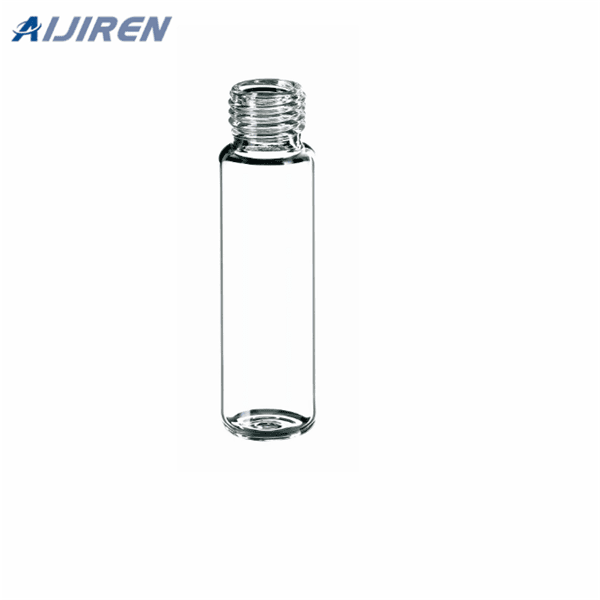.jpg)
1.5mL 9mm Short Thread Vial ND9 9mm 2ml Short Tread HPLC Autosampler Vial 9mm Short Thread Caps with Septa 8-425 2ml Screw Neck HPLC Autosampler Vial Screw Caps with Septa for 8-425 Screw Neck Vial 10-425 Screw Neck 2ml HPLC Autosampler Vial 10-425 Screw Caps with Septa 11mm Crimp Top 2ml Autosampler Vial 11mm Crimp Top Caps with Septa 11mm Snap Ring 2ml Autosampler Vial 11mm Snap Top Caps
.jpg)
3.2. General considerations 3.3. Sample reception 3.4. Opening the package and inspection of the sample 3.4.1. Sample identity confirmation 3.4.2. Verification of the analysis request form 3.4.3. Sample integrity 3.4.4. Laboratory records 3.5. Storage conditions 3.6. Laboratory sample tracking 3.7. Possible problems causing sample rejection
.jpg)
----- GOOD AUTOMATED LABORATORY PRACTICES Page 9 of 19 7.1 Personnel When an automated data collection system is used in the conduct of a laboratory study, all personnel involved in the design or operation of the automated system shall: 1) have adequate education, training, and experience to enable those individuals to perform the assigned
.jpg)
vial A small container for parenteral medicinal products, with a stopper and overseal; the contents are removed after piercing the stopper. Both single-dose and multi-dose types exist. 1. Aspects of packaging 1.1 General considerations Packaging may be defined as the collection of different components

The 13mm manual crimpers fit standard laboratory vials and seals with aluminum caps. The ergonomic curved handle provides more hand comfort during use compared to metal grip designs. The bottom pull handle allows for a steady hold and there is no more "extra" squeeze required. An easily.
.png)
Role in quality management system Sample management is a part of process control, one of the essentials of a quality management system. The quality of the work a laboratory produces is only as good as the quality of the samples it uses for testing. The laboratory must be proactive in ensuring that the samples it receives
.jpg)
Each is involved in the creation, exchange and use of health information and/or data. An efficient interoperability ecosystem provides an information infrastructure that uses technical standards, policies and protocols to enable seamless and secure capture, discovery, exchange and utilization of health information.
.jpg)
May 6, 2021 · The adjustment with the crimping tool is properly a height adjustment. The setting determines the level of compression in the cap and is quite precise. There may be some drifting over time as a result of stretching or wearing-in of components of the new crimper, but frequently the reproducibility from the crimp is as very good as the
.jpg)
Sep 21, 2022 · A whole blood sample can be temporarily stored at room temperature for up to 24 hours or in the refrigerator (2–8°C) for 72 hours (optimum time) or maximum up to 5–6 days. 8 Clinicians should use blood sample collection components (e.g., needle, holder, blood tube) from a single manufacturer and use them according to the manufacturer’s IFU.
.jpg)
In this communication, we report the evaluation of residual seal force measurements (the compression force that the crimp cap exerts on the stopper) to evaluate capping for a large set of samples generated on both an at-scale commercial capper and a benchtop laboratory capper.
.jpg)
The life cycle approach is a good way to standardize manufacturing and cleaning processes. The 2011 FDA guidance document entitled ‘’Process Validation: General Principles and Practices,’’ which “aligns process validation activities with a product lifecycle concept,” segments process validation into three stages: process design, process qualification, and continued process
.jpg)
Feb 1, 2016 · The drug product vial sealed with a rubber stopper and an aluminum flip-off crimp cap: 1 – Aluminum flip-off crimp cap with a plastic flip-off button, 2 – rubber stopper and 3 – vial. 2.1. Glass vials. Glass vials can be manufactured from glass tubings or molding.
.jpg)
The 1.5mL 9mm Short Threaded Sample Vial provides researchers with an effective solution for storing samples in a laboratory environment. It is made from premium plastic materials that reliably maintain sample integrity while producing accurate analytical results. Produced from inert borosilicate glass for chemical resistance and sample stability.
.jpg)
A consistent crimp is based on the user's ability to control/adjust when crimping or decapping. The slim, adjustable steel jaws fit around closely spaced vials, enabling you to crimp vials directly within vial trays. Manual vial crimpers and vial decappers are designed for aluminum closures.
.jpg)
• Regulate private and clinical laboratories to ensure quality laboratory practices • Train laboratory professionals • Participate in formulation of policies that ensure the quality of laboratory services in the country • Conduct reference and specialized testing, public health research, testing food for safety and